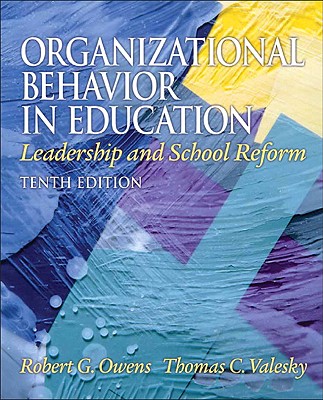I just finished another class towards my doctorate in Educational Leadership through Liberty University. I have really enjoyed this program so far because Liberty does a great job of marrying the theory with the application. I am in my 8th year at North Cobb Christian School and my 4th year as a principal. I have a lot of great experiences under my belt, but also a lot to learn. This class was EDUC 745 Systems Analysis and it was one of the best classes in the program.
The book for the class is Organizational Behavior in Education: Leadership and School Reform by Robert G. Owens and Thomas C. Valesky. This book is written in a way that makes sense to leaders from all walks of life. There are a lot of educational theories discussed throughout along with business practices and solid leadership fundamentals. The book itself is not written from a biblical perspective, but the integration of our professor’s discussion board posts and other class projects, it became very clear that Christians should be excellent leaders in education. I know that is my goal.
I highlighted several things while reading this textbook. I’ll paste a few below to give you an idea of what a great resource this is…
- Like a political revolution, a scientific revolution can succeed only when it wins the approval and acceptance not only of those in the scientific community but also of other relevant constituents.
- Coaching as a Method of Teaching: didactic instruction, socratic teaching method, and coaching
- As you move into the ranks of educational leadership, you may be certain of at least one thing from the outset; the world in which you will work as an educational leader is, and will continue to be, embedded in controversy, conflict, and contention.
- We must never slacken our efforts to develop ever better schools, equalize educational opportunity, and administer greater social justice in schooling.
- Smart Schools are informed, energetic, and thoughtful.
- Organizational behavior is both a field of scientific inquiry and a field of applied practice.
- Organizational culture is a powerful environment that reflects past experiences, summarizes them, and distills them into simplifications that help to explain the enormously complex world of the organization.
- Three tests of participative decision-making: the test of relevance, the test of expertise, and the test of jurisdiction.
